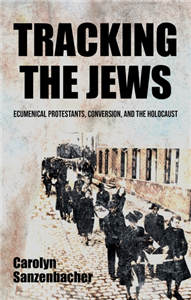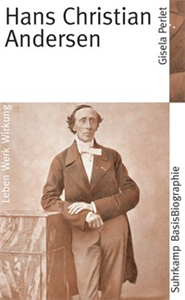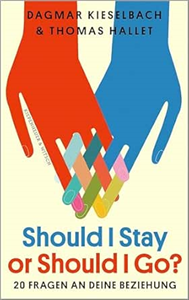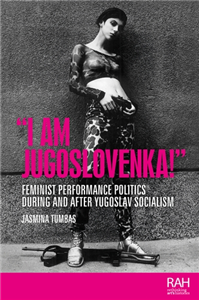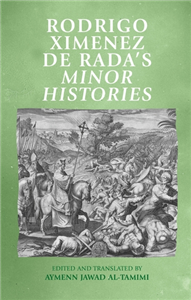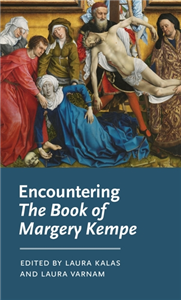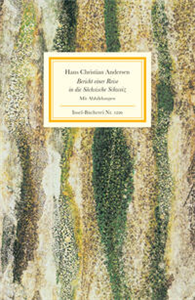Your Search Results
-
Promoted Content
-
Promoted Content2025
Why Be a Christian Today?
by Elisabeth Zoll / Thomas Seiterich (eds.)
The exciting texts and reports by professing Christians offer a fresh perspective for all those who have cultivated a Christian spirituality for many years. However, the book also provides easy access for those who are newly interested in the Christian faith. There are probably as many professions of Christian faith as there are believers in the world. But what do Christians think and how have they been moulded? Elisabeth Zoll and Thomas Seiterich have compiled very personal ideas about the Christian faith in this book. When selecting the contributors, the editors deliberately chose not to include people with church offices or specialised theologians. Irrespective of church policy issues and church scandals, the contributors have provided insights into their path to faith.
-
 Trusted Partner
Humanities & Social SciencesApril 2024
Trusted Partner
Humanities & Social SciencesApril 2024Tracking the Jews
Ecumenical Protestants, conversion, and the Holocaust
by Carolyn Sanzenbacher
This book sheds light on an unprecedented Protestant conversion initiative for the global evangelisation of Jews. Founded in 1929, the International Committee on the Christian Approach to the Jews (ICCAJ) aimed to bring Jewish people to their 'spiritual destiny', a task it saw as both benevolent and essential for a harmonious society. By the time of Hitler's rise to power it was active in thirty-two countries, educating Protestant churches on the right Christian attitude towards Jews and antisemitism. Reconstructing the activities of the ICCAJ in the years before, during and immediately after the Holocaust, Tracking the Jews reveals how ideas disseminated through the organisation's discourse - 'Jewish problem', 'Jewish influence', 'Judaising threat', 'eternal Jew' - were used to rationalise, justify, explain or advance a number of deeply troubling policies. They were, for vastly different reasons, consciously used elements of argumentation in both Protestant conversionary discourse and Nazi antisemitic ideology.
-
 Trusted Partner
Humanities & Social SciencesJanuary 2013
Trusted Partner
Humanities & Social SciencesJanuary 2013Christian Dualist Heresies in the Byzantine World, c. 650-c. 1450
by Janet Hamilton, Bernard Hamilton
Christian dualism originated in the reign of Constans II (641-68). It was a popular religion, which shared with orthodoxy an acceptance of scriptual authority and apostolic tradition and held a sacramental doctrine of salvation, but understood all these in a radically different way to the Orthodox Church. One of the differences was the strong part demonology played in the belief system. This text traces, through original sources, the origins of dualist Christianity throughout the Byzantine Empire, focusing on the Paulician movement in Armenia and Bogomilism in Bulgaria. It presents not only the theological texts, but puts the movements into their social and political context.
-
 Trusted Partner
March 2005
Trusted Partner
March 2005Hans Christian Andersen
by Gisela Perlet
Der Werdegang Hans Christian Andersens vom armen Schustersohn zum erfolgreichen Schriftsteller mutet wie ein Märchen an. Allerdings bemühte er sich auch nach Kräften, diesen Mythos zu pflegen. Andersens Figuren traten schon zu seinen Lebzeiten ihren Siegeszug durch die Welt an und sind bis heute unvergessen.
-
 Trusted Partner
October 2016
Trusted Partner
October 2016My Child and I
by Thorsten Macha, Franz Petermann
How is my child developing? Where can I turn for guidance? How can I stimulate my child’s development? Do I actually need to stimulate it? As a parent, what is my role in promoting development? And cares what it’s like for ME? “My Cild and I” addresses parents’ elementary questions on parenthood and the development of their child. It provides a clear summary of what can be expected from a child, what one can hope for, and what the child needs to be protected from. The parents themselves are not forgotten. Parenting young children is a stressful task: the book therefore contains basic recommendations that show how parents can contribute to their child’s development and where the boundaries of appropriate developmental encouragement lie. It also describes the challenges of parenthood and how parents can avoid becoming overwhelmed. Numerous tips help the reader identify and cope with the developmental risks and crises faced by both children and parents. Target Group: Parents of children between the ages of 0 and 6.
-
 Trusted Partner
Literature & Literary StudiesJanuary 2013
Trusted Partner
Literature & Literary StudiesJanuary 2013The Papal Reform of the Eleventh Century
Lives of Pope Leo IX and Pope Gregory VII
by I. Robinson
The eleventh-century papal reform transformed western European Church and society and permanently altered the relations of Church and State in the west. The reform was inaugurated by Pope Leo IX (1048-54) and given a controversial change of direction by Pope Gregory VII (1073-85). This book contains the earliest biographies of both popes, presented here for the first time in English translation with detailed commentaries. The biographers of Leo IX were inspired by his universally acknowledged sanctity, whereas the biographers of Gregory VII wrote to defend his reputation against the hostility generated by his reforming methods and his conflict with King Henry IV. Also included is a translation of Book to a Friend, written by Bishop Bonizo of Sutri soon after the death of Gregory VII, as well as an extract from the violently anti-Gregorian polemic of Bishop Benzo of Alba (1085) and the short biography of Leo IX composed in the papal curia in the 1090s by Bishop Bruno of Segni. These fascinating narrative sources bear witness to the startling impact of the papal reform and of the 'Investiture Contest', the conflict of empire and papacy that was one of its consequences. An essential collection of translated texts for students of medieval history.
-
 Trusted Partner
Literature & Literary StudiesJanuary 2013
Trusted Partner
Literature & Literary StudiesJanuary 2013Eleventh-century Germany
The Swabian chronicles
by I. Robinson
Three of the most important chronicles of eleventh-century Germany were composed in the south-western duchy of Swabia. The chronicles reveal how between 1049 and 1100 the centripetal attraction of the reform papacy became the dominant fact of intellectual life in German reformed monastic circles. In the abbey of Reichenau Herman 'the Lame' composed a chronicle of the reign of Emperor Henry III (1039-56). His pupil, Berthold of Reichenau, continued his master's work, composing a detailed account of 1076-1079 in Germany. Bernold, a clergyman of Constance, continued the work of Herman and Berthold in a text containing the fullest extant account of 1080-1100. Herman's waning enthusiasm for the monarchy and growing interest in the newly reformed papacy were intensified in Berthold's chronicle, and writing in the new context of the reformed monasteries of south-western Germany, Bernold preached total obedience to the Gregorian papacy. The Swabian chronicles are an indispensable resource to the student of the changing loyalties and conflicts of eleventh-century Germany.
-
 Trusted Partner
Trusted Partner
Should I Stay or Shoul I Go?
20 Fragen an deine Beziehung
by Hallet, Thomas & Kieselbach, Dagmar
Die Liebe neu entfachen oder sich doch verabschieden? 20 klärende Fragen für Frauen in langjährigen Beziehungen. Fühlen Sie sich in Ihrer Beziehung festgefahren oder stecken gar in einer Ehekrise?Haben Sie das Gefühl, nur noch nebeneinanderher zu leben?Fehlt die Leidenschaft, und der Zweifel an der Partnerschaft nagt an Ihnen? Besonders Frauen in der Lebensmitte stellen sich oft die Frage: War das schon alles oder kommt da noch was? Soll ich gehen oder bleiben? In »Should I Stay or Should I Go?« stellen die erfahrenen Paartherapeuten Dagmar Kieselbach und Thomas Hallet, selbst seit über 30 Jahren verheiratet, 20 essenzielle Fragen, die Ihnen dabei helfen, ehrlich Bilanz zu ziehen. Anhand von aufschlussreichen Fallbeispielen aus ihrer Praxis und konkreten Hilfestellungen zeigen sie Wege auf, wie Sie Ihre Beziehung wieder mit Leben füllen können – oder woran Sie erkennen, dass es Zeit ist, loszulassen und über eine Scheidung oder Trennung nachzudenken. Persönlich, provokant und praxisnah liefert dieses Buch wertvolle Einsichten statt plumpe Ratgeberfloskeln. »Das Einzige, was nachweislich glücklich macht, sind gute Beziehungen. Dank dieses Buches wissen wir, ob unser Miteinander überhaupt ›gut‹ ist und wie wir es vor allem besser machen können. Ein Muss für alle, die Liebe in ihrem Leben haben möchten!« Nicole Staudinger
-
 Trusted Partner
Trusted Partner
-
 Trusted Partner
Trusted Partner
-
 Trusted Partner
The ArtsFebruary 2022
Trusted Partner
The ArtsFebruary 2022"I am Jugoslovenka!"
Feminist performance politics during and after Yugoslav Socialism
by Jasmina Tumbas, Amelia Jones, Marsha Meskimmon
"I am Jugoslovenka" argues that queer-feminist artistic and political resistance were paradoxically enabled by socialist Yugoslavia's unique history of patriarchy and women's emancipation. Spanning performance and conceptual art, video works, film and pop music, lesbian activism and press photos of female snipers in the Yugoslav wars, the book analyses feminist resistance in a range of performative actions that manifest the radical embodiment of Yugoslavia's anti-fascist, transnational and feminist legacies. It covers celebrated and lesser-known artists from the 1970s to today, including Marina Abramovic, Sanja Ivekovic, Vlasta Delimar, Tanja Ostojic, Selma Selman and Helena Janecic, along with music legends Lepa Brena and Esma Redzepova. "I am Jugoslovenka" tells a unique story of women's resistance through the intersection of feminism, socialism and nationalism in East European visual culture.
-
 Trusted Partner
Humanities & Social SciencesJanuary 2026
Trusted Partner
Humanities & Social SciencesJanuary 2026Rodrigo Ximenez de Rada’s Minor Histories
by Aymenn Al-Tamimi
This work provides the first complete English translation of works by Toledan archbishop Rodrigo Ximénez de Rada (1170-1247 CE), whose 'Minor Histories' are sequels to his larger 'Gothic History' and thus round off his grand history of Spain project that he began at the request of King Ferdinand III. The 'Minor Histories' include Rodrigo's 'History of the Arabs' that can be considered the first surviving Western monograph focused on Arab and Islamic history and thus occupies a unique position in the medieval Latin corpus of writings. In addition to the translation, this book provides a thorough and accessible introduction to the life and works of Rodrigo, making sense of the context in which he wrote and his historical method. The translations are thoroughly annotated including cross-references to other Latin and Arabic sources for comparison.
-
 Trusted Partner
Trusted Partner
-
 Trusted Partner
Literature & Literary StudiesNovember 2021
Trusted Partner
Literature & Literary StudiesNovember 2021Encountering The Book of Margery Kempe
by Laura Kalas, Laura Varnam, David Matthews, Anke Bernau, James Paz
This innovative critical volume brings the study of Margery Kempe into the twenty-first century. Structured around four categories of 'encounter' - textual, internal, external and performative - the volume offers a capacious exploration of The Book of Margery Kempe, characterised by multiple complementary and dissonant approaches. It employs a multiplicity of scholarly and critical lenses, including the intertextual history of medieval women's literary culture, medical humanities, history of science, digital humanities, literary criticism, oral history, the global Middle Ages, archival research and creative re-imagining. Revealing several new discoveries about Margery Kempe and her Book in its global contexts, and offering multiple ways of reading the Book in the modern world, it will be an essential companion for years to come.
-
 Trusted Partner
Trusted Partner
-
 Trusted Partner
March 2001
Trusted Partner
March 2001Bericht einer Reise in die Sächsische Schweiz
by Hans Christian Andersen, Ulrich Sonnenberg, Ludwig Richter, C. A. Richter
Hans Christian Andersen (1805 - 1875) war ein reisefreudiger Mann. Im Frühjahr 1831 fuhr er durch Deutschland und hielt seine Eindrücke in einem Reisebuch fest. Es sind die Schönheiten der Gegend um Dresden, die ihn besonders entzückten, es war die freundliche Aufnahme »vortrefflicher Menschen«, die ihm guttat, und es war die geheimnisvolle Melancholie, die über der Sächsischen Schweiz liegt, die seiner Herzensstimmung entgegenkam. Der Reisebericht, der in der ersten deutschen Gesamtausgabe von 1847 erschien, war um zahlreiche politische, religiöse und persönliche Passagen gekürzt worden, Kürzungen, die spätere Ausgaben beibehielten. Hier liegt Andersens Reisebericht erstmals mit dem ungekürzten Text vor: in der vollständigen Fassung in Deutschland ein bislang fast unbekanntes Werk.
-
 Trusted Partner
November 2010
Trusted Partner
November 2010Lebenslust mit Christian Morgenstern
by Christian Morgenstern, Thomas Kluge
Christian Morgenstern wurde am 6. Mai 1871 in München geboren. 1892/93 begann er ein Studium der Rechtswissenschaften an der Universität Breslau, das er bald abbrach. Er zog nach Berlin und war dort als Journalist, Kultur- und Literaturkritiker und Redakteur tätig und veröffentlichte zahlreiche Beiträge und Glossen in Zeitschriften. Sein erster von seinen insgesamt vierzehn Lyrik-Bänden In Phantas Schloß erschien 1895. In der Folgezeit beschäftigte er sich mit der Übersetzung und Herausgabe der Werke von August Strindberg und Henrik Ibsen und schrieb für Max Reinhardts Berliner Kabarett »Schall und Rauch«. Von 1903 bis 1905 war er Redakteur der Zeitschrift »Das Theater« im Verlag von Bruno Cassirer, für den er auch als freier Lektor arbeitete. 1909 schloß sich Morgenstern dem Kreis der antroposophischen Gesellschaft um Rudolf Steiner an. Am 31. März 1914 starb er in Meran / Italien an den Folgen einer Tuberkulose-Erkrankung.
-
 Trusted Partner
Trusted Partner
-
 Trusted Partner
Trusted Partner








